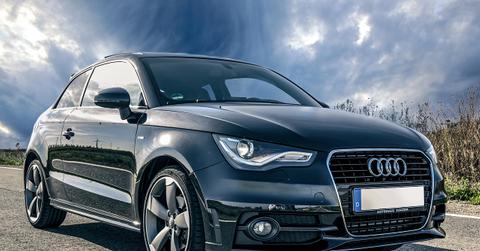Audi Becomes Next Car Manufacturer To Implement Solar Panels
Audi's first entry into the electric vehicle market will feature solar panels. While they won't be able to charge the battery just yet, it'll provide more range by powering devices like the air conditioning and seat heaters.
Updated Nov. 19 2020, 9:38 p.m. ET
Solar energy isn’t able to charge electric vehicles on the go yet, but it can make them more efficient. Audi has teamed up with Hanergy to develop specialized panels for their new cars. The concept has been seen by other manufacturers, but the German company may have the best effort yet.
Audi’s vision is to have thin solar panels scattered across the glass roof of their inaugural electric vehicle, the “e-tron quattro.” Its flexibility will be able to conform to any part of the roof, providing as much real estate as possible to allow maximum solar power. According to Digital Trends, the unique ability will be able to gather in sunlight at all times of the day.
Energy generated by the solar panels will be used to power amenities inside the vehicle, such as air conditioning, and seat heaters. They’ll be absorbing the generated power so the car battery is able to focus more on increasing the vehicle’s range. At the moment, no statistics are available to show how much energy it could save, but there is an expected range of over 310 miles at the car battery’s full capacity.
“The range of electric cars plays a decisive role for our customers,” said Dr. Bernd Martens, Audi’s Board of Management Member for Procurement in a press release. “Together with Hanergy, we plan to install innovative solar technology in our electric cars that will extend their range and is also sustainable.”
Solar cells will be developed by Alta Devices in California, which is a subcompany of Hanergy. Hanergy specializes in thin film solar power in China. Efficiency levels of the solar cells could reach up to 25 percent. Not only could they absorb energy in lower levels of light, but they are better at handling hot temperatures than traditional solar panels.
Production of the “e-tron quattro” will begin next year and preorders are already being taken, similar to how Tesla handled preorders for the Model 3. Interestingly enough, Audi’s new EV provides a solar rooftop we all expected Tesla to create. Elon Musk said back in the National Governors Association Summer Meeting that electric vehicles themselves didn’t provide a great way to charge their own batteries.
Indeed, Audi’s addition of the solar cells proves that EVs aren’t ready to charge the car battery itself just yet. However, the technology used could be the gateway to make such a thing happen. A prototype will be built that features the solar panels by year’s end. No retail price has been suggested yet, but Electrek believes it will fall between $41,000 and $49,000.
It’s impressive to see that the “e-tron quattro” features such a large range, and solar generation will likely aid to power on the three OLEDs found in the front of the vehicle. Audi promises sustainable solutions with their new vehicle, and they’re off to a positive start with the beginnings of solar power generation for their EVs.
